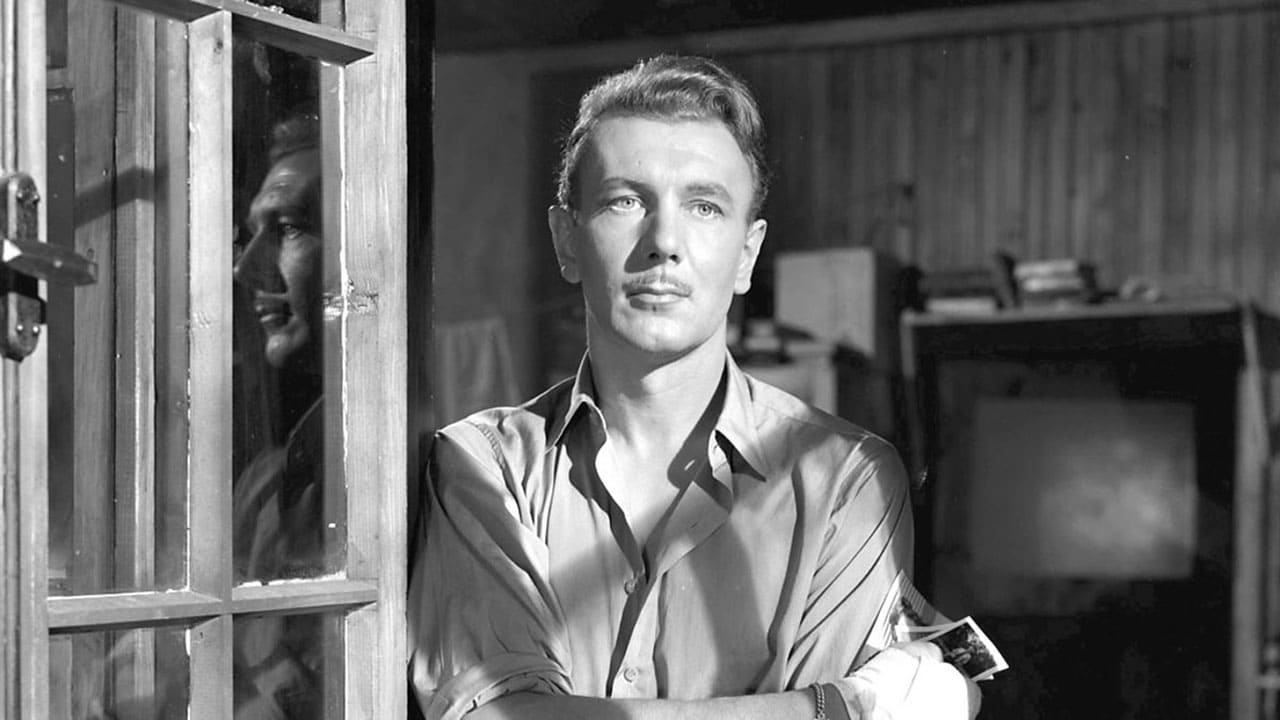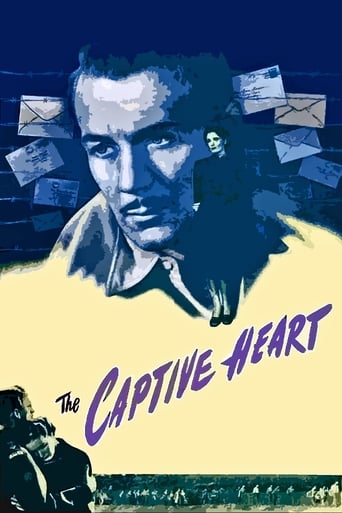KnotMissPriceless
Why so much hype?
Diagonaldi
Very well executed
Greenes
Please don't spend money on this.
Stellead
Don't listen to the Hype. It's awful
kijii
The movie is a broad photo montage of several stories--from one setting--of British soldiers who were captured early in WWII (1941) and placed in a German POW camp. Is depicts what happens to them and their loved ones, back home, as they are separated by time and space. How do the relationships change? How do they remain the same? What holds them together or drives them apart? Four years can be like a lifetime to those it affects. This is no Stalag 17 or Hogan's Heroes-type movie. I found the movie to be very engaging and enjoyable, even as half of a long-range relationship undergoes very big changes. Changes can range anywhere from physical disability, to "Dear John" letters, to birth and/or death. The relationship often—usually—depend on letters and photos back and forth.
robert-temple-1
This is an immensely sensitive and very moving film about British POWs rounded up by the Germans at Dunkerque (Dunkirk) in 1940 and marched 220 miles to be interned for the rest of the War in a German POW camp. The film is half about them and half about their lives and loves back home, utilising flashbacks as well as real time events intercut with the men in the camp. The technique is carried out so well that it is highly effective and never seems forced. Much of the film was made in Germany, including the reconstruction of the POW camp. The film aimed for absolute authenticity, and was made with the passion and intensity which was perhaps only possible in the year immediately following the War, when all the issues raised were at their peak of relevance, both to the people making the film and the viewing public. The film is full of wonderful, sensitive and deeply-felt performances. They all really put their hearts into it, and it shows. For instance, rarely can the character actor Mervyn John have embodied such pathos. And the intensity of emotion conveyed by both Rachel Kempson and Jane Barrett is remarkable. Barrett died tragically young at the age of only 46, in 1969, having worked a great deal in television but never obtained the quality roles worthy of her in feature films. Thus she is little known today, but this film shows her qualities admirably. This was one of director Basil Dearden's finest films. He made it immediately after his two episodes of DEAD OF NIGHT (1946), and three years later he directed two episodes of the wonderful classic, TRAIN OF EVENTS (1949, see my review), one of which also dealt with prisoners of war. (The ironical thing is that Dearden made films all through the War and was not in the services, so had no military experience.) It is apparently in this film that Dearden's long professional association with Michael Relph commenced. Relph was both Associate Producer and Art Director on this film. Later he would produce most of Dearden's films. The lead role in this film is played by Michael Redgrave. He had already been married to Rachel Kempson for eleven years when they played in this film together. Redgrave plays a Czech soldier who has escaped from Dachau and is being hunted by the Germans. He speaks perfect English and indeed has been Professor of English at Prague University. He comes across the dead body of Captain Geoffrey Mitchell, a British officer, and takes his identity and uniform, is captured by the Germans and sent to the POW camp as an Englishman. The real Mitchell had been estranged from his wife (played by Rachel Kempson). Redgrave is forced to engage in correspondence with his 'wife' in order to convince the Germans that he is not an impostor. He smashes his right hand so that he is forced to write with his left, as a way of excusing the change of hand-writing to his 'wife'. They then exchange increasingly passionate letters to one another over the years, leading to an awkward situation when the War finally nears its end and Redgrave is 'repatriated' to England as Captain Mitchell. There are wonderful character parts for Gordon Jackson, Jack Warner, Gladys Henson, and others. Derek Bond is excellent as a sensitive concert pianist, Lieutenant Harley. The following year he was to make a big hit as Nicholas Nickleby in the film of that (1947). He never achieved lasting star status, and died as recently as 2006 after appearing in 67 titles. This film, done with such passion and integrity, is a classic of the time, and makes compulsive viewing today considering what it conveys of historical importance, of the manners, situations, and modes of feeling of that period.
Robert J. Maxwell
A diverse group of British prisoners of war wind up in a camp in Holland. Among the genuine men is a Czech escapee sought by the Gestapo, Michael Redgrave. He stumbled across the body of a British officer and assumed his identity. The Brits soon twig and are supportive but a Gestapo visitor, Karel Stepanek, keeps wondering where he met "Captain Mitchell" before. It seems only a matter of time.Escape being impossible, the men have little to do except create tiny gardens and cricket playing fields in order to create a little bit of England in the prison camp. And they wait for the mail. It's their lifeline to the outer world. For most of the men, the news from outside is good but we get to know the stories, in short flashbacks, of those whose messages are troublesome. A man's wife dies in childbirth. Another breaks off his engagement because he doesn't want his girl to know he's blind. Another gets a poison pen letter accusing his wife of infidelity.The man in the worst spot, of course, is Redgrave the impostor. The affable Gestapo officer remarks that Redgrave has been receiving mail but has written no letters in reply. Redgrave must write to a dead man's wife, but if he does, he can't tell her the truth because the mail is censored. In any case, his handwriting will give his secret away to the woman at the other end. So he does what any normal man would do to save his life -- he has his right hand smashed by a sledge hammer and writes with his left hand to mask his real identity.The movie is a tribute to the men who kept a stiff upper lip throughout their four-year incarceration and an encomium to the post. The real subject of the movie is the mail. The plot isn't very clear about the point but I believe the delivery of mail was handled through the International Red Cross in Switzerland.The men boarded up in camp don't really DO very much. There is no combat and only a few shots are fired. (They accidentally kill a guard dog.) There are longueurs, but in the end many of the prisoners are repatriated and sent back to England, including Redgrave, who manages to be included only at the sacrifice of another man's good luck.The scenes of the men's return are moving and adroitly handled. No one breaks into sobs. Deaths at home are accepted. Men's conflicts are resolved, happily in each case, and their families' too.It isn't a bad film, especially considering its period -- 1946. The war had just ended and no one was concerned about the Germans' feelings, yet the Germans we see are uniformly good-natured and reasonable. Not that we get to see much of them. And of course there is always the threat of the Gestapo for Redgrave to worry about. And none of the girls back home are glamorous either. Like their men, they look like ordinary people you might bump into at the supermarket.It's not as involving as, say, "The Best Years of Our Lives." That film dealt exclusively with the post-war adjustment of veterans. The bulk of this film, on the other hand, sticks us in a prison camp with nothing to do but plant leeks -- or maybe asparagus, which take seven years to mature. And there is no exciting central plot, no coordinated smash out, as in "The Great Escape." It's all rather understated, stiff upper lip, even Redgrave's final conciliatory phone call to the dead Mitchell's widow isn't heard against the background of celebratory fireworks on V-E Day.If it's a bit slow in the middle, it picks up the pace at the end and is a good watch.
writers_reign
The old saying if you're going to steal, steal from the best rings true in this case which is essentially In Which We Serve in khaki; both feature men in confined spaces reminiscing about their lives in Civvy Street with the main difference being that instead of a lifeboat we have a prison camp where a similar cross-section of Upper, Middle and Working Classes learn to rub along more or less amicably. For good measure they even ripped off the celebrated scene from Casablanca where the German singing is drowned out by 1) the Marseillaise and 2) Roll Out The Barrel, but the most blatant rip-off from the Coward masterpiece is in the two married couples, respectively Bernand Miles/ Joyce Carey/ John Mills/Kay Walsh and Jack Warner/Gladys Henson/Mervyn Johns/Rachel Thomas, who were friends before the war so much so that the two wives move in together for the duration; in each film one wife is killed and the news is broken to the widower via a letter from home to the other man so here Jack Warner gets to tell Mervyn Johns that Rachel Thomas is dead. This to one side The Captive Heart remains a compelling film because at its heart (sorry about that) is the wonderfully low-key love story between Michael Redgrave and his real-life wife Rachel Kempson of which 95 per cent is played out via under-stated letters which only mention love between the lines. The support is largely sound and trivia buffs will be interested to note that two years earlier (1944) Meriel Forbes had married Ralph Richardson so that the film boasted the real-life wives of two future theatrical knights. One to buy on DVD.

